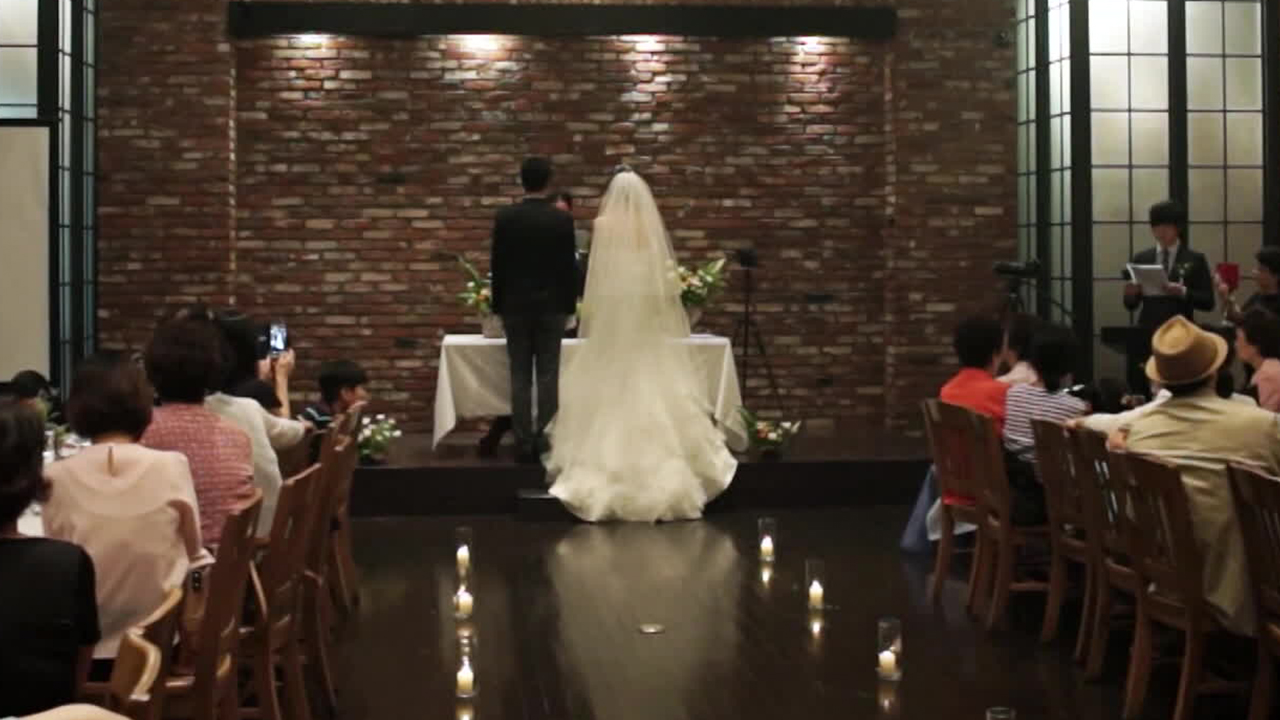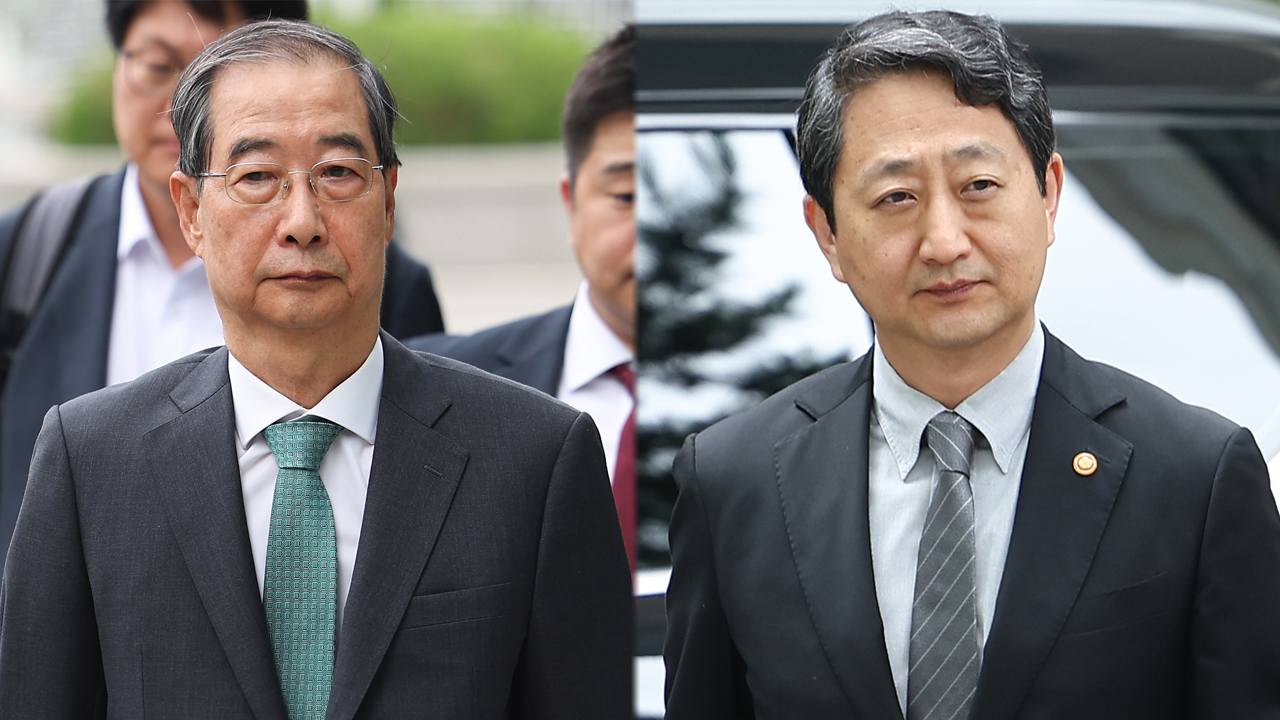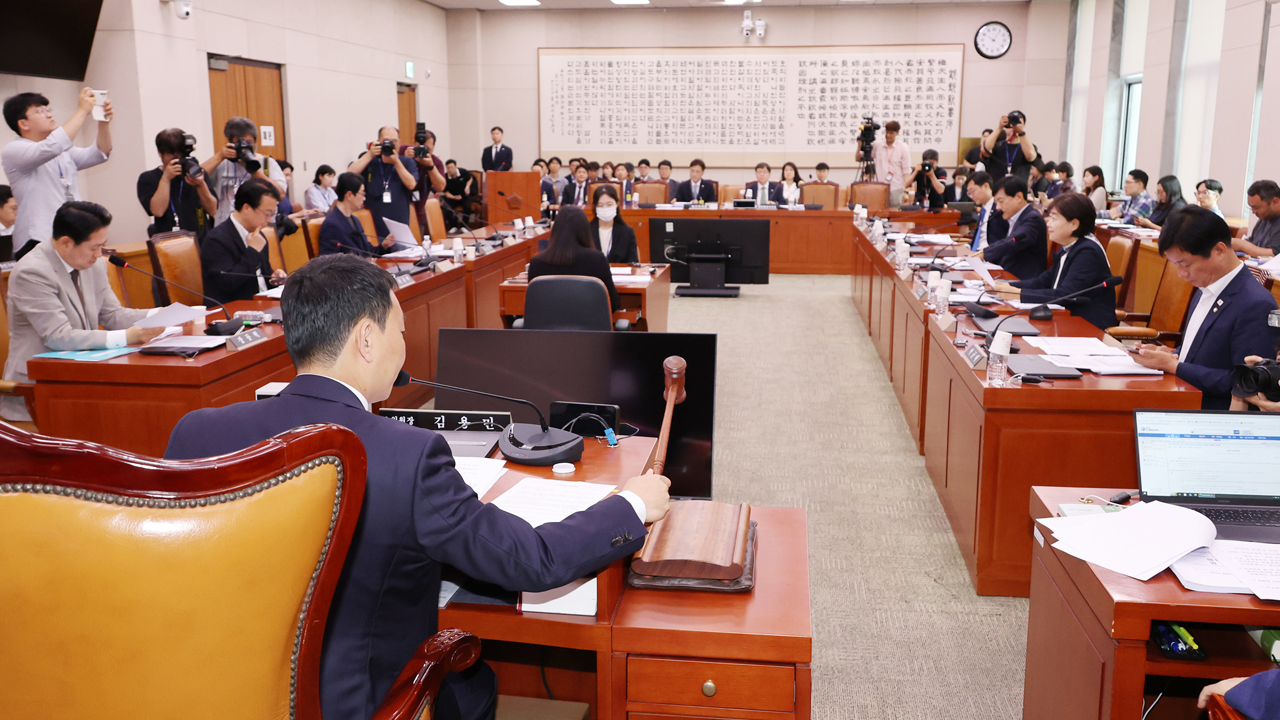Rising marriage rates face hurdles in boosting births
입력 2024.11.28 (00:12)
읽어주기 기능은 크롬기반의
브라우저에서만 사용하실 수 있습니다.
[Anchor]
The positive signals in the number of newborns seem to be influenced by the increase in marriage rates.
In particular, the trend of young people responding positively to marriage has been captured in statistics.
What social efforts are needed for this trend to lead to childbirth?
Reporter Park Chan has looked into this.
[Report]
According to a social survey by Statistics Korea, the proportion of respondents who believe "marriage is necessary" has increased significantly among those in their 20s and 30s compared to other age groups.
[Park Sang-jun/28 years old: "I think it's changing positively, and just looking around me, everyone wants to get married…."]
This is a gathering of workers in their 20s and 30s.
["(Why is your home there?) Because I like being close to my in-laws."]
Behind the thoughts that seem different from the older generation, there is a reality where many of the obligations that come with marriage have been alleviated.
[Lee Han-bin/29 years old: "The obligations like taking care of ancestral rites and what to do about wedding gifts have decreased a lot, and it seems like there are many areas that can be discussed between both families…."]
The perception that household chores should be shared equally has also become firmly established among those in their 20s and 30s.
This couple, who got married in June this year, also shares household chores fairly.
[Kang Soo-ran/30s newlywed couple: "My husband mainly does the cooking and washing dishes, while I do the cleaning and laundry."]
The current parents in their 20s and 30s have more assets and have been economically active longer than the previous generation of parents.
The financial independence of parents who do not rely on social and economic support may have influenced the perception of marriage among young people.
However, among the youth, marriage does not necessarily mean childbirth.
[Kim Hyun-woo/30s newlywed couple: "(In the future) the first condition is to live near my mother-in-law or parents to get help with childcare. It’s now taken for granted that both partners work, but this makes it difficult to manage childcare."]
We need to continue to monitor and support whether women can work without career interruptions after childbirth, and whether the burden of private education costs or housing prices is excessive, in order to increase marriage rates and that could lead to childbirth.
This is KBS News, Park Chan.
The positive signals in the number of newborns seem to be influenced by the increase in marriage rates.
In particular, the trend of young people responding positively to marriage has been captured in statistics.
What social efforts are needed for this trend to lead to childbirth?
Reporter Park Chan has looked into this.
[Report]
According to a social survey by Statistics Korea, the proportion of respondents who believe "marriage is necessary" has increased significantly among those in their 20s and 30s compared to other age groups.
[Park Sang-jun/28 years old: "I think it's changing positively, and just looking around me, everyone wants to get married…."]
This is a gathering of workers in their 20s and 30s.
["(Why is your home there?) Because I like being close to my in-laws."]
Behind the thoughts that seem different from the older generation, there is a reality where many of the obligations that come with marriage have been alleviated.
[Lee Han-bin/29 years old: "The obligations like taking care of ancestral rites and what to do about wedding gifts have decreased a lot, and it seems like there are many areas that can be discussed between both families…."]
The perception that household chores should be shared equally has also become firmly established among those in their 20s and 30s.
This couple, who got married in June this year, also shares household chores fairly.
[Kang Soo-ran/30s newlywed couple: "My husband mainly does the cooking and washing dishes, while I do the cleaning and laundry."]
The current parents in their 20s and 30s have more assets and have been economically active longer than the previous generation of parents.
The financial independence of parents who do not rely on social and economic support may have influenced the perception of marriage among young people.
However, among the youth, marriage does not necessarily mean childbirth.
[Kim Hyun-woo/30s newlywed couple: "(In the future) the first condition is to live near my mother-in-law or parents to get help with childcare. It’s now taken for granted that both partners work, but this makes it difficult to manage childcare."]
We need to continue to monitor and support whether women can work without career interruptions after childbirth, and whether the burden of private education costs or housing prices is excessive, in order to increase marriage rates and that could lead to childbirth.
This is KBS News, Park Chan.
■ 제보하기
▷ 카카오톡 : 'KBS제보' 검색, 채널 추가
▷ 전화 : 02-781-1234, 4444
▷ 이메일 : kbs1234@kbs.co.kr
▷ 유튜브, 네이버, 카카오에서도 KBS뉴스를 구독해주세요!
- Rising marriage rates face hurdles in boosting births
-
- 입력 2024-11-28 00:12:43

[Anchor]
The positive signals in the number of newborns seem to be influenced by the increase in marriage rates.
In particular, the trend of young people responding positively to marriage has been captured in statistics.
What social efforts are needed for this trend to lead to childbirth?
Reporter Park Chan has looked into this.
[Report]
According to a social survey by Statistics Korea, the proportion of respondents who believe "marriage is necessary" has increased significantly among those in their 20s and 30s compared to other age groups.
[Park Sang-jun/28 years old: "I think it's changing positively, and just looking around me, everyone wants to get married…."]
This is a gathering of workers in their 20s and 30s.
["(Why is your home there?) Because I like being close to my in-laws."]
Behind the thoughts that seem different from the older generation, there is a reality where many of the obligations that come with marriage have been alleviated.
[Lee Han-bin/29 years old: "The obligations like taking care of ancestral rites and what to do about wedding gifts have decreased a lot, and it seems like there are many areas that can be discussed between both families…."]
The perception that household chores should be shared equally has also become firmly established among those in their 20s and 30s.
This couple, who got married in June this year, also shares household chores fairly.
[Kang Soo-ran/30s newlywed couple: "My husband mainly does the cooking and washing dishes, while I do the cleaning and laundry."]
The current parents in their 20s and 30s have more assets and have been economically active longer than the previous generation of parents.
The financial independence of parents who do not rely on social and economic support may have influenced the perception of marriage among young people.
However, among the youth, marriage does not necessarily mean childbirth.
[Kim Hyun-woo/30s newlywed couple: "(In the future) the first condition is to live near my mother-in-law or parents to get help with childcare. It’s now taken for granted that both partners work, but this makes it difficult to manage childcare."]
We need to continue to monitor and support whether women can work without career interruptions after childbirth, and whether the burden of private education costs or housing prices is excessive, in order to increase marriage rates and that could lead to childbirth.
This is KBS News, Park Chan.
The positive signals in the number of newborns seem to be influenced by the increase in marriage rates.
In particular, the trend of young people responding positively to marriage has been captured in statistics.
What social efforts are needed for this trend to lead to childbirth?
Reporter Park Chan has looked into this.
[Report]
According to a social survey by Statistics Korea, the proportion of respondents who believe "marriage is necessary" has increased significantly among those in their 20s and 30s compared to other age groups.
[Park Sang-jun/28 years old: "I think it's changing positively, and just looking around me, everyone wants to get married…."]
This is a gathering of workers in their 20s and 30s.
["(Why is your home there?) Because I like being close to my in-laws."]
Behind the thoughts that seem different from the older generation, there is a reality where many of the obligations that come with marriage have been alleviated.
[Lee Han-bin/29 years old: "The obligations like taking care of ancestral rites and what to do about wedding gifts have decreased a lot, and it seems like there are many areas that can be discussed between both families…."]
The perception that household chores should be shared equally has also become firmly established among those in their 20s and 30s.
This couple, who got married in June this year, also shares household chores fairly.
[Kang Soo-ran/30s newlywed couple: "My husband mainly does the cooking and washing dishes, while I do the cleaning and laundry."]
The current parents in their 20s and 30s have more assets and have been economically active longer than the previous generation of parents.
The financial independence of parents who do not rely on social and economic support may have influenced the perception of marriage among young people.
However, among the youth, marriage does not necessarily mean childbirth.
[Kim Hyun-woo/30s newlywed couple: "(In the future) the first condition is to live near my mother-in-law or parents to get help with childcare. It’s now taken for granted that both partners work, but this makes it difficult to manage childcare."]
We need to continue to monitor and support whether women can work without career interruptions after childbirth, and whether the burden of private education costs or housing prices is excessive, in order to increase marriage rates and that could lead to childbirth.
This is KBS News, Park Chan.
이 기사가 좋으셨다면
-
좋아요
0
-
응원해요
0
-
후속 원해요
0
















이 기사에 대한 의견을 남겨주세요.